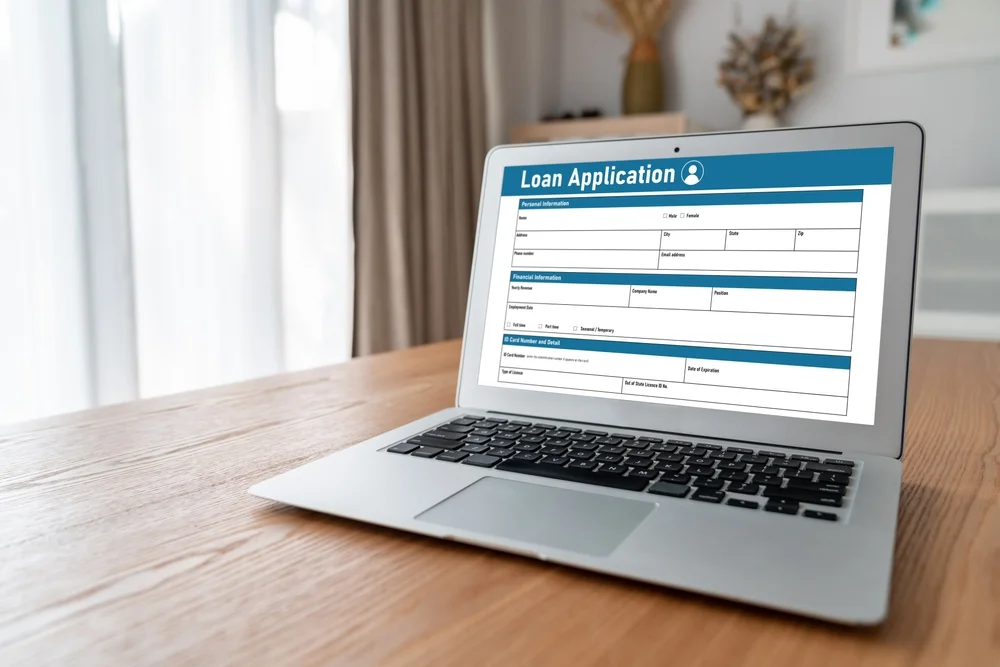
The Pre-Property Checklist Every Home Buyer Needs
Buying your first home is one of the biggest financial steps you’ll ever take. It’s exciting but also filled with important decisions that can shape your long-term comfort and security. Working with an experienced buyers agent in Sydney can simplify the process and help you make confident, well-informed decisions from day one. From sorting out your finances to understanding the finer details of ownership costs, being prepared from the start makes the journey smoother and less stressful. At BMC Buyers Agency, we know that a well-structured plan can make all the difference between a confident purchase and an overwhelming experience.
Taking a step-by-step approach helps you stay in control, especially when faced with multiple inspections or paperwork and tight timelines. By following a detailed checklist before you start attending open homes, you can make informed choices and avoid costly mistakes. Each stage in the process (from budgeting to final settlement) plays a vital role in ensuring your property purchase aligns with your goals and lifestyle.

Step 1: Get Your Finances in Order
Before you begin your property search, it’s crucial to understand where you stand financially. Knowing how much you can afford and how lenders will assess you helps you make realistic decisions. This stage sets the foundation for the rest of your journey and determines the type of properties you can confidently pursue. A clear financial plan gives you peace of mind and prevents surprises later on.
Review your savings and deposit.
Your savings are the cornerstone of your property purchase, and they influence the type of loan you can access. Lenders typically require a deposit of at least 5% to 20% of the property price, so having a solid savings plan is essential. Regularly reviewing your progress helps you stay on track and identify where you can boost your contributions.
- Set a savings goal that covers both the deposit and additional expenses like moving or furnishing the home.
- Consider automating transfers to a separate account dedicated solely to your future property.
- Review your current spending habits and trim unnecessary costs to accelerate your savings timeline.
Understand additional upfront costs
Many buyers underestimate the number of upfront costs involved in purchasing a home. Beyond the deposit, you’ll need to factor in fees such as stamp duty and mortgage setup charges. Having a detailed list of these expenses ensures you aren’t caught off guard during the final stages of the transaction.
- Estimate stamp duty based on your target price range using official government calculators.
- Ask for quotes from conveyancers and building inspectors early in your planning phase.
- Keep a contingency buffer of around 5% of your property value for unexpected costs.
Check your credit score and borrowing capacity.
Your credit history can significantly affect the interest rate and loan amount a lender offers. Checking it early allows you to fix any errors and improve your score before applying for a loan. Understanding your borrowing capacity gives you a clear picture of what you can comfortably afford.
- Obtain your credit report from a reliable provider and ensure all listed details are accurate.
- Pay off existing debts or reduce credit card limits to strengthen your loan application.
- Use online borrowing calculators to get a realistic sense of your budget range.
Step 2: Secure Loan Pre-Approval
Getting pre-approval from a lender is one of the smartest moves you can make before house hunting. It not only clarifies your budget but also signals to sellers and agents that you’re a serious buyer. With a pre-approved loan, you can focus your search on properties within your range, so you save time and energy. This also allows you to make confident decisions during negotiations.
Why pre-approval gives you clarity on your budget.
Pre-approval provides a clear snapshot of how much a bank is willing to lend based on your income and financial profile. This helps you focus only on properties that fit your actual budget rather than estimates. It also gives you a sense of security when making offers, knowing you’ve already met initial lender requirements.
- It eliminates uncertainty by showing the maximum amount you can borrow before you start searching.
- You can set realistic expectations and avoid overextending your finances.
- It provides a stronger position when negotiating with sellers or bidding at auctions.
How it strengthens your position with sellers and agents.
Having pre-approval shows sellers that you’re ready to move quickly and seriously if they accept your offer. It creates trust between both parties, as the seller knows financing is unlikely to delay the process. This can give you a competitive edge in tight property markets.
- Agents are more likely to prioritise your offer over buyers who haven’t secured pre-approval.
- It can speed up the time between offer acceptance and settlement.
- It helps you avoid disappointment from losing to more prepared buyers.
What documents you’ll need.
Lenders require specific documentation to assess your financial stability and verify your income. Preparing these ahead of time speeds up the pre-approval process and reduces back-and-forth communication. Being organised also leaves a positive impression on your lender.
- Gather payslips with tax returns and bank statements covering the last few months.
- Include details of all liabilities, such as credit cards or car loans.
- Have identification documents like a driver’s licence or passport ready for verification.
Step 3: Research Neighbourhoods and Lifestyle Factors
Choosing the right area is just as important as choosing the right property. It influences your potential property value and overall satisfaction. Researching the neighbourhood allows you to match your lifestyle with your long-term investment goals. The more informed you are, the better your chances of finding a home that fits your needs.
Consider commute times and transport.
Proximity to amenities plays a huge role in how convenient your new home will be. Living near good schools and local shops can make everyday life easier. These factors also influence the property’s future resale value.
- Map out the daily commute to your workplace and check for public transport options.
- Research nearby schools and shopping centres to assess community convenience.
- Consider accessibility for family members, especially if you have children or elderly parents.
Research suburb growth and crime rates.
Neighbourhood growth and development plans can affect your property’s long-term value. Infrastructure improvements like new roads or train stations can boost convenience and demand. On the other hand, understanding local crime trends ensures safety and peace of mind.
- Visit local council websites for updates on upcoming development projects.
- Review historical property price trends to gauge capital growth potential.
- Check official police or government data to compare crime statistics between suburbs.
Visit at different times of day to get a true feel.
The atmosphere of a neighbourhood can vary depending on the time of day or week. Visiting multiple times helps you notice things you might miss during a quick inspection. It’s the best way to ensure the area aligns with your lifestyle.
- Observe traffic flow and lighting conditions during different times.
- Chat with local residents or shop owners to get a sense of community culture.
- Take note of parking availability and street activity during weekends or evenings.

Step 4: Define Your Must-Haves and Deal Breakers
Before attending open homes, clarify what you truly need from a property. This helps you filter out unsuitable listings and focus on homes that meet your priorities. It also ensures that emotional appeal doesn’t override practical needs. Setting clear boundaries helps you make faster, more confident decisions.
Create a list of essentials.
Every buyer has key features that define their ideal property. Whether it’s the number of bedrooms or a garage or backyard, having a checklist keeps your search structured. Knowing your essentials also makes it easier to communicate your requirements to agents.
- Consider the space needed for family growth or home office setups.
- Evaluate how often you’ll use certain areas, such as outdoor entertaining spaces.
- Make sure the layout supports your daily routines and lifestyle preferences.
Identify features you can compromise on.
Flexibility is important when shopping in a competitive market. While it’s ideal to find a home that ticks every box, being open-minded expands your options. Learning to compromise ensures you don’t miss out on great opportunities.
- Decide which features are negotiable, such as flooring type or kitchen design.
- Assess whether certain upgrades can be made later within your budget.
- Prioritise location and structure over cosmetic details that can be changed easily.
Differentiate between “wants” vs. “needs”.
Many buyers fall into the trap of chasing luxury features that stretch their budget. Distinguishing between wants and needs keeps your expectations realistic. It also prevents regret when maintenance or financial responsibilities increase.
- Write two separate lists to help you visually compare your priorities.
- Focus on practical needs like accessibility and long-term functionality.
- Review your list after every inspection to refine what truly matters.
Step 5: Arrange Professional Support
Working with qualified professionals ensures that every step of your property purchase is legally and financially sound. From loan arrangements to legal documentation, the right experts can protect your interests. They also provide clarity and peace of mind during complex negotiations. Partnering with reliable professionals is an investment in a stress-free buying process.
Engage a mortgage broker or financial adviser.
A mortgage broker can help you find the best loan deals suited to your financial situation. They can also explain complex loan terms and manage lender communications on your behalf. Having professional guidance ensures you don’t overlook important details.
- Brokers often have access to a wide range of lenders, offering better interest rate options.
- They simplify comparisons between fixed and variable rate structures.
- They handle paperwork efficiently, reducing the stress of loan applications.
Choose a conveyancer or solicitor for contracts.
Property contracts involve detailed legal terminology and obligations. A conveyancer ensures everything is in order before you sign. They protect your rights and make sure you fully understand the transaction terms.
- They verify ownership documents and ensure there are no hidden legal issues.
- They handle contract reviews and settlement arrangements.
- They help identify potential legal risks before you commit to a purchase.
Line up building and pest inspectors.
Professional inspections provide critical insights into the property’s condition. They can reveal hidden issues that might cost thousands to fix later. Having these reports before purchase helps you negotiate or avoid risky investments.
- Inspectors check for structural integrity and potential infestations.
- Detailed reports help you estimate repair or maintenance costs accurately.
- They give you leverage to renegotiate or withdraw from unfavourable deals.
Step 6: Understand the Buying Process
Every property transaction follows specific steps that can vary based on the type of sale. Understanding how these work prevents confusion and helps you make informed decisions. It’s important to know your rights and obligations at every stage. This knowledge empowers you to navigate negotiations confidently.
How auctions differ from private sales.
Auctions are fast-paced and legally binding, while private sales offer room for negotiation. Knowing the difference helps you prepare mentally and financially for each situation. Understanding these formats also affects how you approach bidding or making offers.
- Auctions typically have no cooling-off period, so all research must be done beforehand.
- Private sales allow conditional offers subject to finance or inspection results.
- Familiarise yourself with bidding rules and deposit requirements before attending.
Key steps: making an offer before signing contracts and settlement timelines.
From the moment you make an offer to final settlement, timing and documentation are crucial. Missing a deadline can delay ownership or cause legal complications. Staying organised and proactive keeps the process running smoothly.
- Always submit offers in writing and confirm terms with your agent or solicitor.
- Review every contract clause before signing to ensure accuracy.
- Stay in close contact with your conveyancer and lender to track progress.
Know your legal rights and cooling-off periods.
Understanding your rights as a buyer protects you from unfair terms or rushed decisions. Cooling-off periods allow a short window to reconsider your purchase. Knowing these timelines can save you from financial stress if something changes unexpectedly.
- Check state regulations, as cooling-off rules vary between regions.
- Notify your conveyancer immediately if you decide to withdraw during this period.
- Ensure all contract conditions are clearly stated before the cooling-off deadline expires.

Step 7: Prepare for Ownership Costs
Owning a property doesn’t end with paying the purchase price. There are ongoing costs that must be budgeted for to maintain the property and comply with local regulations. Planning for these helps you stay financially stable long after moving in. Being proactive about ownership costs ensures your investment remains sustainable.
Council rates, strata/body corporate fees.
Local councils and strata bodies charge fees to maintain community infrastructure and shared facilities. These payments are mandatory and vary depending on the property type and location. Understanding these costs upfront prevents future budget issues.
- Review previous rate notices or strata reports provided by the seller.
- Ask your conveyancer to explain what’s included in body corporate fees.
- Include these payments in your monthly expense forecast to avoid shortfalls.
Insurance with maintenance and utilities.
Once you own a property, you become responsible for protecting and maintaining it. Insurance safeguards against accidents or natural events, while maintenance ensures longevity. Utilities such as electricity and water must also be managed within your household budget.
- Compare insurance providers to find the right balance between coverage and cost.
- Schedule routine maintenance to prevent costly emergency repairs.
- Track your energy usage and consider efficiency upgrades to save money long-term.
How to budget for ongoing financial responsibility.
Budgeting for property ownership helps you avoid unnecessary financial strain. It allows you to plan for repairs, emergencies and future improvements. A well-managed budget supports a comfortable and worry-free lifestyle.
- Allocate a small portion of income each month towards a property maintenance fund.
- Update your budget annually to reflect changing costs and inflation.
- Keep a record of all property-related expenses for easier tax or financial planning.
Buying a home is a journey that combines strategy and preparation. By following each step in this checklist, you’ll ensure your decisions are thoughtful and well-informed. From financial readiness to post-settlement budgeting, every action contributes to a smoother experience and a more secure investment.
BMC Buyers Agency has guided countless clients through the entire property-buying process, ensuring they feel confident at every stage. With the right support and planning, you can achieve your property goals and enjoy the rewards of homeownership for years to come.
Ready to take the first step?
Contact BMC Buyers Agency today and embark on your property journey with us.


